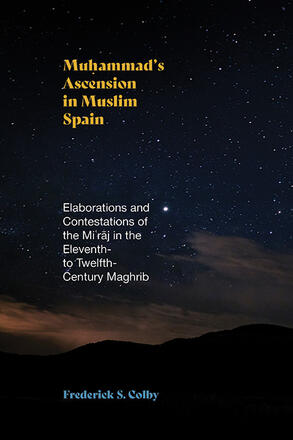
Muḥammad’s Ascension in Muslim Spain
Elaborations and Contestations of the Miʿrāj in the Eleventh- to Twelfth-Century Maghrib
A survey of the Muslim, Jewish, and Christian debates and mystical discussions about Muhammad’s heavenly journey that took place in early medieval Spain.
Description
This book demonstrates how Muhammad's heavenly journey, as discussed throughout the eleventh and twelfth centuries in the western Mediterranean, was the site both of polemical religious debates and of a rich and varied tradition of mystical commentary. Out of these fertile contexts sprang two very influential sets of ascension discourses: First, the growth of the "Perfect and Complete" version of the Islamic ascension tale that spread throughout the Muslim world; second, the complex and multidimensional mystical interpretations of Muhammad's journey by one of the most famous Sufis of all time, the "Grand Master" Muhyi al-Din Ibn ‘Arabi (d. 1240 CE). This work surveys key sources of this Andalusi contemplative tradition and also includes a complete translation of one of its very earliest written texts, preserved in a unique fragmentary Arabic manuscript, making this important historical document accessible to scholars, students, and general audiences alike for the very first time.
Frederick S. Colby is Associate Professor of Religious Studies at the University of Oregon. He is the author of Narrating Muhammad's Night Journey: Tracing the Development of the Ibn ʿAbbās Ascension Discourse, also published by SUNY Press, and the editor and translator of The Subtleties of the Ascension: Lataʾif al-Miraj: Early Mystical Sayings on Muhammad's Heavenly Journey..
Reviews
"This remarkable study introduces a little-known body of Islamic ascension literature. Colby's nuanced approach, which situates this literature in relation to Sufism of the central Islamic lands along with a careful exploration of the theological and philosophical milieu of medieval Spain, makes this a valuable contribution to the study of Sufism and the western pietistic Islamic traditions." — Richard J. A. McGregor, Vanderbilt University